| With over 10 years of experience in researching Southeast Asia and Vietnamese economy, Prof. Dr. Andreas Stoffers confidently affirms that, Vietnam should be officially recognized as a market economy. |  | | Prof. Dr. Andreas Stoffers, Country Director at the Friedrich Naumann Foundation for Freedom Vietnam is not alone with his viewpoint. In the conversation with The World and Vietnam Report, the expert, who has fallen in love with Vietnam at first sight, argued that the S-shaped country clearly demonstrates the ability to meet the requirements of a market economy at a level equivalent to other market-economy countries, and even does better in some aspects... 
Up to now, a total of 72 countries have recognized Vietnam as a market economy, notably the United Kingdom, Canada, Australia and Japan. In September 2023, Vietnam officially requested the US to consider and recognize Vietnam as a market economy. What is your assessment of Vietnam's market economy today? Vietnam's economy has made considerable progress in recent years, both in terms of quantity and quality. Personally, I think that modern Vietnam today can rightly be called a "market economy". And I am not alone with my assessment: Most recently, Vietnam’s progress was acknowledged by the World Heritage Foundation’s annual report on Economic Freedom 2024. Specifically, Vietnam ranks 59 out of 179 countries and is considered as a “moderately free” country. But the most remarkable point is that since the establishment of the report 30 years ago, no other country had seen a higher growth than Vietnam, moving up 13 ranks alone in the previous year. | 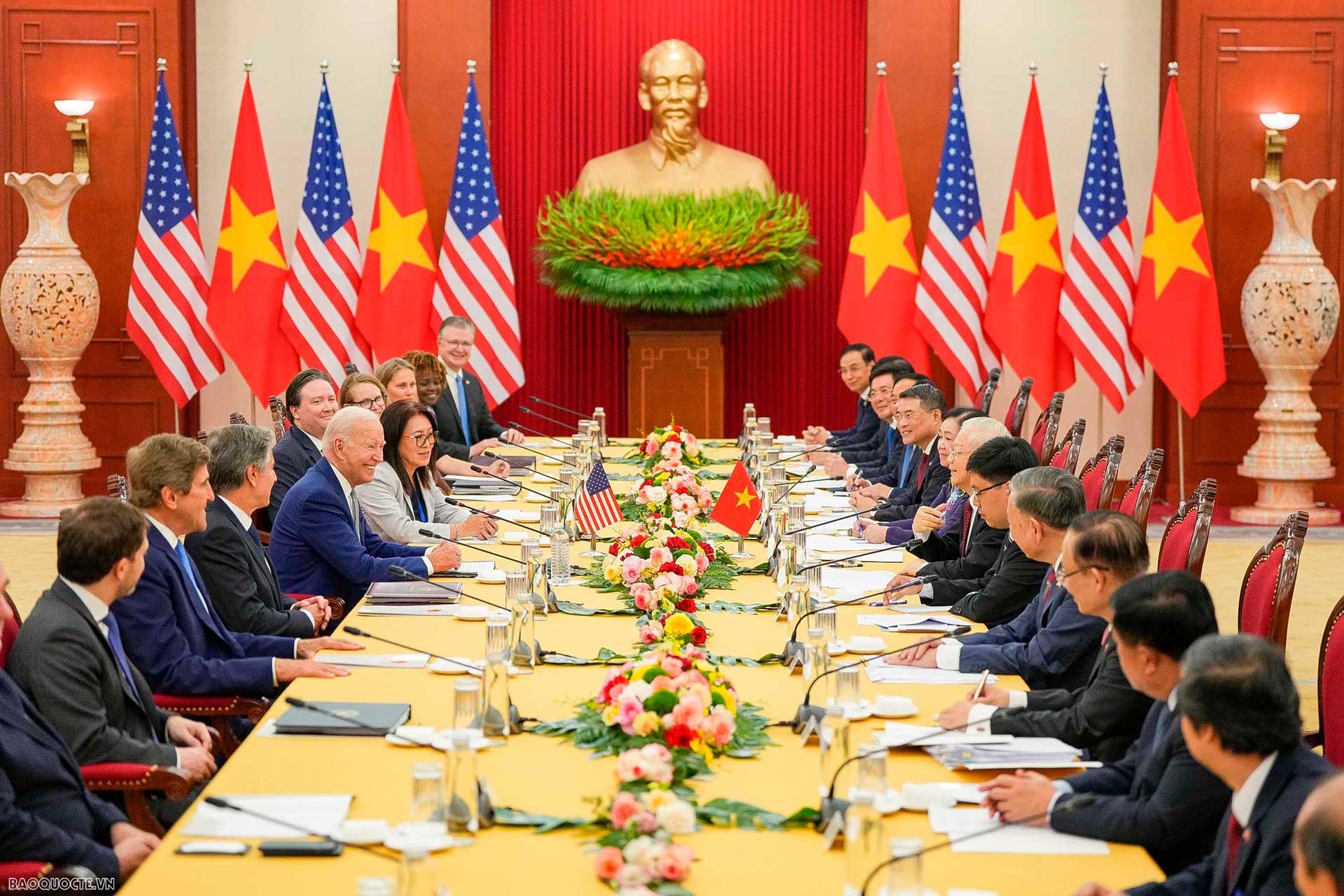 | | The high-level meeting between General Secretary Nguyen Phu Trong and President Joe Biden on September 10, 2023, in Hanoi yielded very positive outcomes, as evidenced by the adoption of the Joint Statement on elevating Vietnam-U.S. relations to a Comprehensive Strategic Partnership for the purposes of peace, cooperation, and sustainable development. | | Vietnam's economy has made considerable progress in recent years, both in terms of quantity and quality. Personally, I think that modern Vietnam today can rightly be called a "market economy".
| It is Vietnam's adherence to a market economy model, coupled with prudent fiscal management leading to low public debt, and a cautious monetary policy overseen by the State Bank of Vietnam (SBV) have all contributed to this positive economic environment. The positive trajectory of Vietnam's economy, especially within the export sector, is primarily attributed to the country's longstanding commitment to an open market economy, which has been in place since the Doi Moi reforms of 1986. The country has also been very active in signing 16 Free Trade Agreements (FTA), including "second-generation agreements" like the EVFTA with the European Union, and 3 FTAs is on negotiation. Regarding relations with the world’s largest econonomy, the Bilateral Trade Agreement (BTA) with the USA (2001), Vietnam’s Membership in WTO (2007) and the “US-Vietnamese Strategic Partnership” last year were further pieces of the colorful puzzle in the two countries’ ties. Since the Doi Moi until now, Vietnam has made great progress by moving away from a centrally planned economy to gradually perfect its market economy. The market is increasingly playing a decisive role in terms of price and supply/demand. Vietnam not only has favors of free trade and also increasingly attracting investors from around the world, including Japan, Republic of Korea, Singapore, the US, China and EU. Although the Vietnamese Government provides certain guidelines for economic policy, it largely stays out of micromanagement, giving room for manoeuvres by private investors. The private sector currently contributes nearly 45% of the country's GDP is significantly lower than that of Germany or the USA, but it is a remarkable achievement over 40 years of economic transformation. The U.S. is currently Vietnam's largest export market and its second largest trading partner. If the U.S. recognizes Vietnam as a market economy, in your opinion, how will the two countries gain mutual benefits from trade? The USA is already heavily involved in trade relations with Vietnam and has benefited from trade liberalisation in the past. In the last five years alone, Vietnam's export revenues to the US have increased by 230%, while imports have increased by more than 175%. Since the BTA, bilateral trade has grown from 2.9 billion USD in 2002 to over 139 billion USD in 2022 and 128.71 billion USD in 2023, making Vietnam the sixth largest source of U.S. imports and the 28th largest destination for U.S. exports. In 2023, Vietnam exported 97.02 USD billion worth of goods to the US. Compared to 109.38 billion USD in 2022, Vietnam recorded a sharp decline of 12.7%, which is not a cause for concern but should be carefully monitored. The removal of trade barriers, especially trade remedies such as anti-dumping and countervailing duties, makes trade in goods and services easier and cheaper. Trade turnover between the two countries is expected to multiply should US-Vietnam trade relations intensify, for which the recognition of Vietnam as a market economy is an important milestone. This can encourage even more US companies to become more involved in and with Vietnam and to seek market access. | 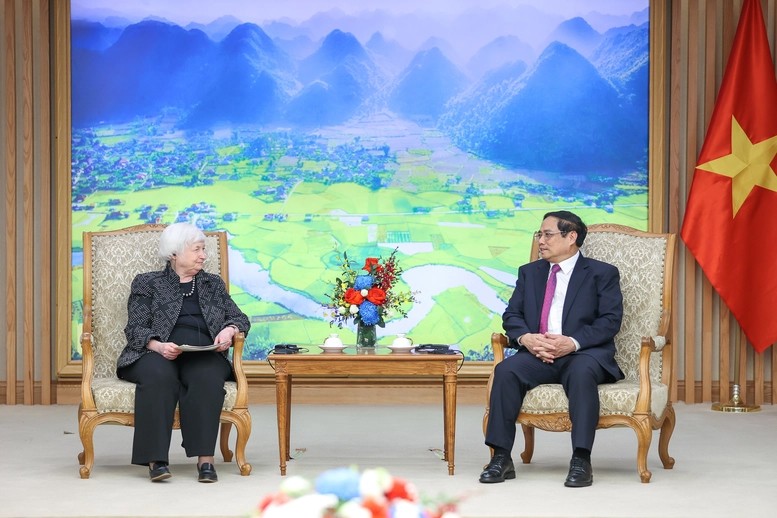 | | Prime Minister Pham Minh Chinh meets with U.S. Treasury Secretary Janet Yellen during her visit to Vietnam in July 2023. | | The Bilateral Trade Agreement (BTA) with the USA (2001), Vietnam’s Membership in WTO (2007) and the “US-Vietnamese Strategic Partnership” last year were further pieces of the colorful puzzle in the two countries’ ties.
| Not only trade, with its broad role and influence, when the U.S. recognizes Vietnam's market economy, can investment between the two countries also grow stronger? Definitely. When the U.S. regconizes the market economy status, Vietnam’s reputations in the world’s largest economy will be enhanced. Strengthened bilateral relations promote smoother trade channels, improve market access, and increase the “footprints” of US businesses and investors in the Vietnamese market. Vietnam has become one of the preferred alternatives, instead of China, for manufacturers due to its favourable geographical location, competitive wages, skilled workforce, many FTAs and its regional connectivity to the Asia-Pacific region. In the past time, major US companies such as Apple, Intel, Qualcomm, Universal Alloy Corporation (UAC), Nike and Key Tronic EMS have already relocated production lines from China to Vietnam. Industries such as textiles, footwear, aquatic products, electronics, components and furniture are expected to raise exports to the US to a new level in the near future with proper planning and investment. Over the past five years, US direct investment has consistently ranked among the top 12 foreign investors in 2021 and in 2022 it will be among the top eight with more than USD 700 million in registered direct investment per year. The cumulative US investment in Vietnam over the past 30 years amounts to around USD 12 billion, spread over 1,374 projects. In general, the business climate for US FDI is very positive. Further work should be done on this, e.g. via stricter enforcement of intellectual property rights (IPR) to attract even more investors. Ultimately, a location in Vietnam can also be an advantage because the country is an alternative to China, but at the same time it is also firmly integrated into the international value chain through a large number of free trade agreements. Moreover, Vietnam offers a central location in the heart of ASEAN and Asia-Pacific. To put it in a nutshell: Investment relations between the two countries could intensify after Vietnam’s recognition as market economy. 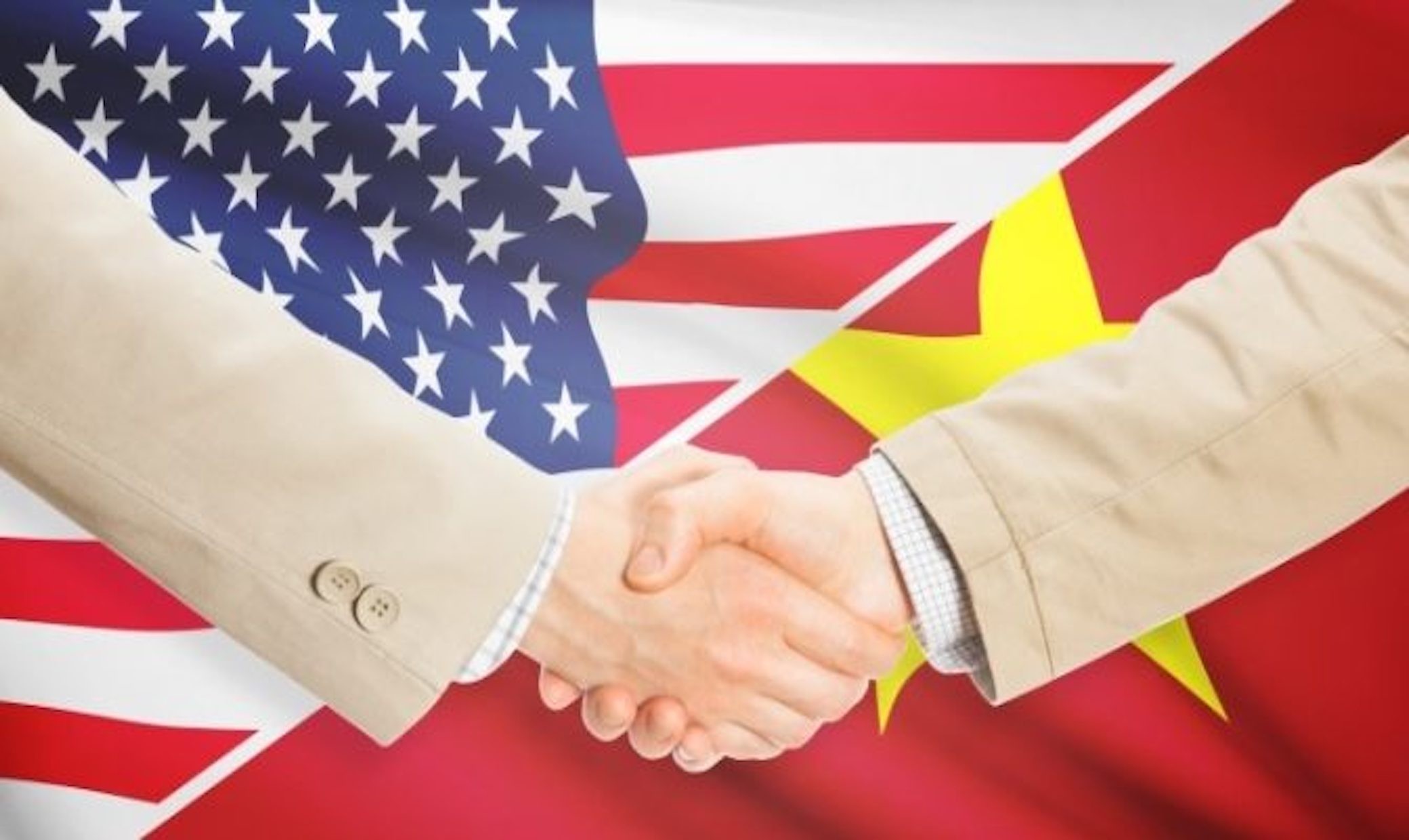 | | The USA is already heavily involved in trade relations with Vietnam and has benefited from trade liberalisation in the past. | 
Reuters reports that currently, steel manufacturers and shrimp farmers on the US Gulf Coast of Mexico oppose raising Vietnam to a market economy status. However, retailers and other business groups support the move. Thus, on the American side, there are still opposing opinions on this matter. Should such opinions be an excuse for the US to lose great opportunities in trade and investment cooperation with Vietnam?In the area of trade policy, there is always the case where some industries benefit more and others less. This is completely normal and is in the nature of things. The essential point is that the effect of an open trade policy is clearly positive on the balance sheet. More stakeholders would benefit, both in Vietnam and in the US. Vietnam has clearly demonstrated that it meets the requirements of a market economy to a degree that is similar to that of other market economy countries or even better in some respects. In addition, geopolitically cooperation with Vietnam in all areas is also important for the USA. In my opinion, Vietnam wants to maintain its neutrality and strives for good relations with all powers. This includes diversification of supply chains, which is in the interests of both Washington and Hanoi. The U.S. should not miss out on a great opportunity with Vietnam, in terms of trade and investment. As for steel producers and shrimp farmers on Mexico's U.S. Gulf Coast, they have concerns that such a status will help reduce anti-dumping taxes on Vietnamese imports, thereby increasing competition with domestic goods. | Vietnam has become one of the preferred alternatives, instead of China, for manufacturers due to its favourable geographical location, competitive wages, skilled workforce, many FTAs and its regional connectivity to the Asia-Pacific region.
| However, suffice it to say that they would be better off working on their own competitiveness rather than relying on U.S. trade measures imposed on other countries. Of course, the same argument also applies to Vietnamese companies, which have to face and continue to face the same competition in many other areas. | | 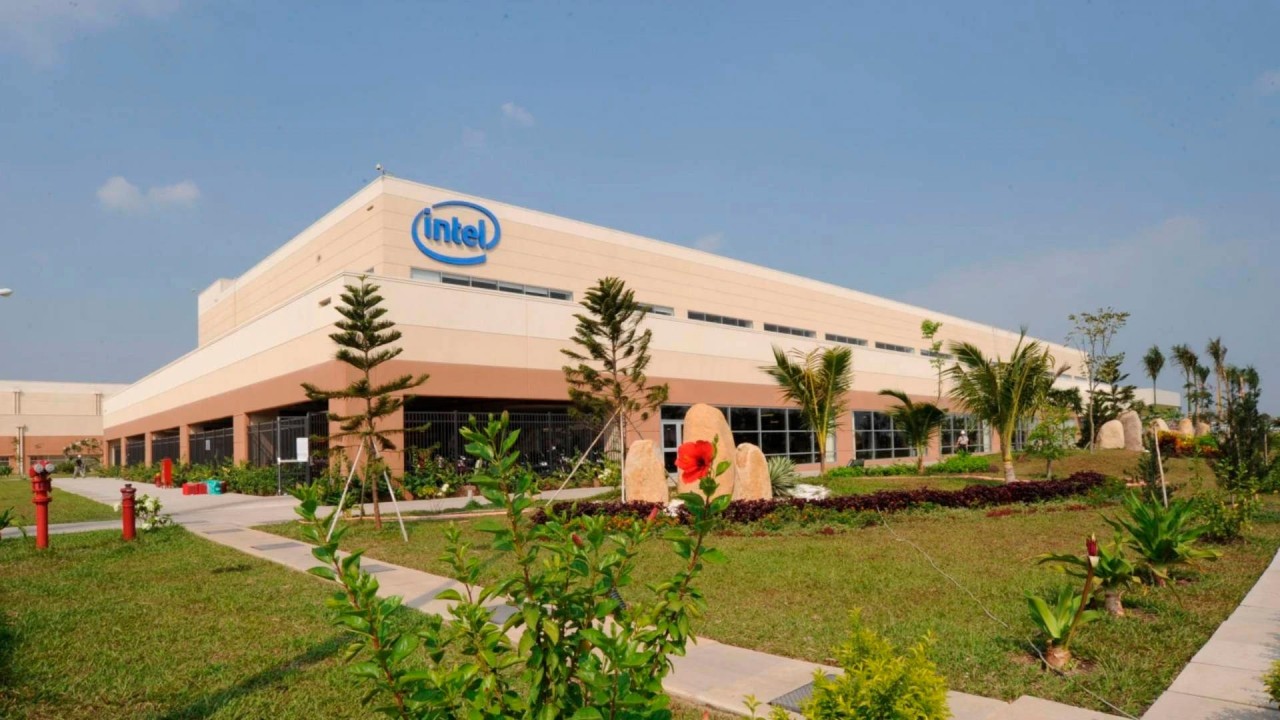 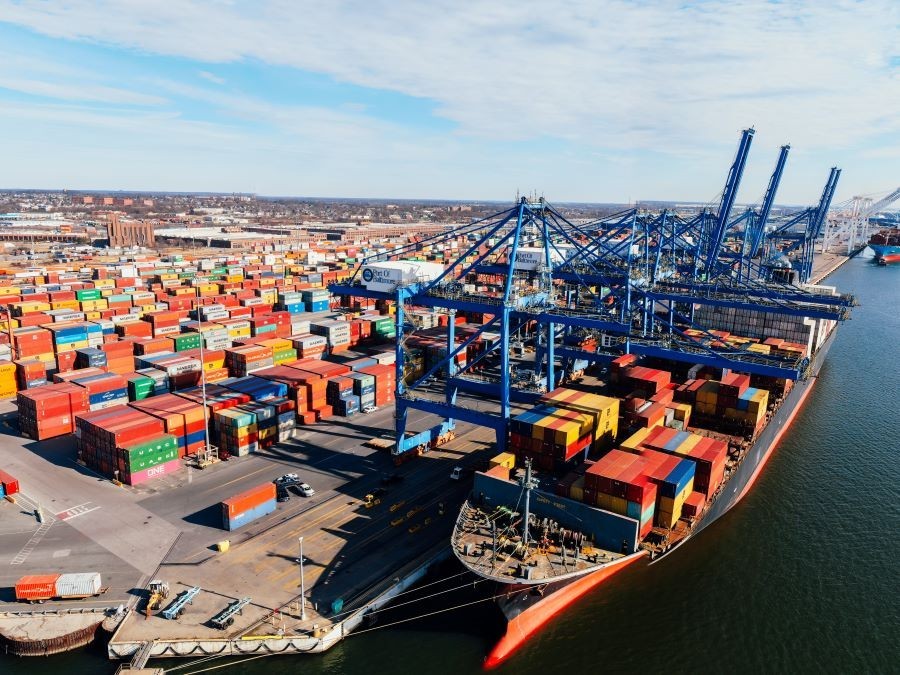
| In the case of Vietnam, two trends are evident: the country's market economy structure and the clear trend towards even more freedom in the future. For this reason, in my opinion, the USA should grant Vietnam the status of a "market economy".
| The U.S. has 6 regulations to recognize the market economy. On May 8, at a virtual hearing related to reviewing the dossier for recognition of Vietnam's market economy regulations, the Vietnamese Government clearly stated the arguments, information and data, affirming that Vietnam's economy fully meets the 6 criteria of market economy regulations according to US law. What is your opinion on this matter? Under U.S. regulations, there are six criteria used to determine whether a country is a market economy. These include: (1) the degree of convertibility of the currency; (2) the possibility of wage and salary negotiations between employees and employers; (3) the extent of foreign investment in the economy; (4) issues of public and private ownership; (5) the degree of government control over certain resources and prices; and (6) other factors. Vietnam has fulfilled these criteria: Many positive changes have happened in Vietnam: State ownership of companies has fallen significantly in recent years. Wages can be set through free negotiation between labour and management. Moreover, according to the US Treasury Department, there is no manipulation of the VND and there is a fair business environment for international investors. As an example of the immense scope of this classification decision: Treating Vietnam as a non-market economy would still allow the US to impose a nationwide tax rate on companies that do not cooperate or cannot demonstrate that they are not under government control. The national tax rate, which is typically calculated by the United States based on available data, is often set high and maintained in all reviews, hindering consideration of duty elimination. Recognising Vietnam as a market economy would change this and certainly give a boost to bilateral trade relations. However, there is definitely room for improvement in Vietnam. I consider “judicial effectiveness” to be particularly important for Vietnam. This includes the further development of an effective legal framework, especially the possibility of taking legal action as a company against injustices, irregularities and administrative decisions. I would also include the issue of “compliance”. Efforts need to be intensified here by enhancing transparency and fairness in the legal system, ensuring that legal regulations are enforced transparently. In addition, the speed of decision-making and the acceleration of many administrative processes must be increased. The target should be further promoting economic freedom by administrative reform, reducing administrative procedures, increasing transparency and optimising efficiency in administrative management in order to create favourable conditions for businesses to operate. Even though Vietnam is now likely to be recognised as a market economy, I see it as a homework assignment to continue working on improving market economy structures in order to improve the competitiveness and efficiency of the economy. This in no way detracts from Vietnam's successes to date. Vietnam deserves to be called a "market economy". | 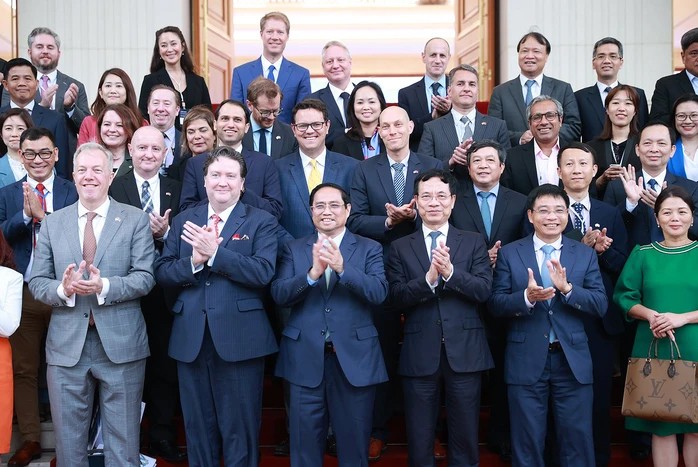 | | Prime Minister Pham Minh Chinh takes a commemorative photo with the delegation from the U.S.-ASEAN Business Council in September 2023. | | A boost in US-Vietnamese economic relations resulting from Vietnam's recognition as a market economy will give the USA the opportunity to expand and afirm its conprehensive strategic partnership with Vietnam and further diversify its supply chains in Asia.
| Vietnam has met the US's criteria and the benefits it brings to both countries. In your opinion, is now the time for the US to recognize Vietnam as a market economy? Vietnam has made remarkable progress in terms of market liberalisation in recent years, which has been recognised internationally, most recently by the latest report of the World Heritage Foundation. Not everything is perfect, but which country in the world has a "perfect market economy"? However, in the case of Vietnam, both are clear: the country's market economy structure and the clear trend towards even more freedom in the future. For this reason, in my opinion, the USA should grant Vietnam the status of a "market economy". In addition to the market economy facts in Vietnam, which speak for themselves, it is also in the interests of the USA not to allow its influence in the Asia-Pacific region to wane in an age of increasing global power-political polarisation. A boost in US-Vietnamese economic relations resulting from Vietnam's recognition as a market economy will give the USA the opportunity to expand and afirm its conprehensive strategic partnership with Vietnam and further diversify its supply chains in Asia. After all, good relations between the US and Vietnam are an important step towards a peaceful world order based on trade relations at a time of global tension. And let's be honest: ultimately, the recognition of Vietnam as a market economy by the USA is the recognition of facts. Thank you so much! Interviewer: Linh Chi | Design: LimDim | Photos: Photo: TGVN, VGP, Bloomberg, PLO, Vneconomy… | |